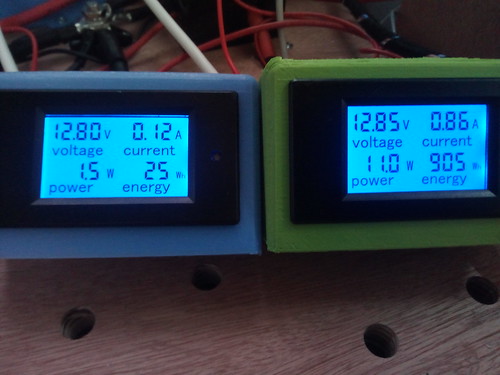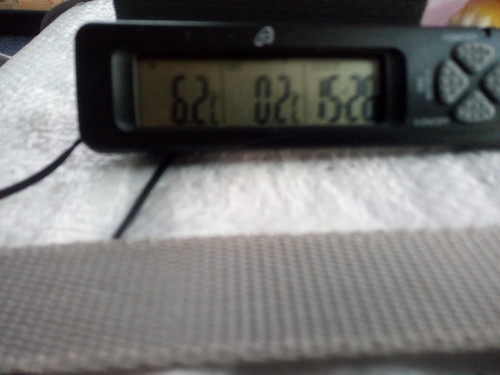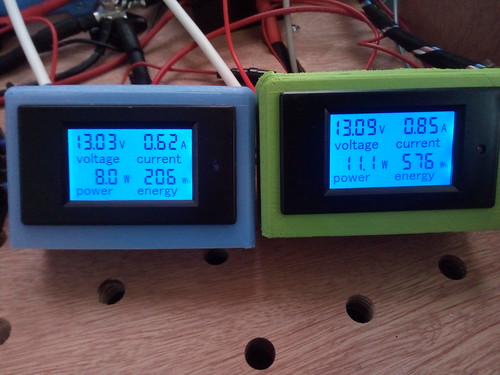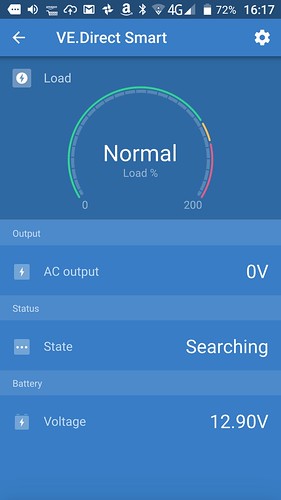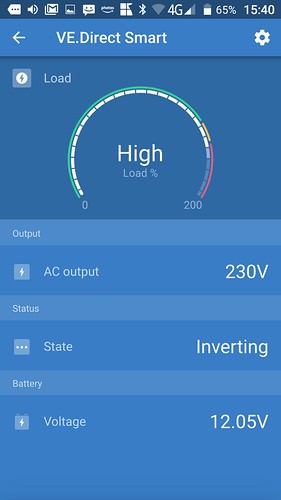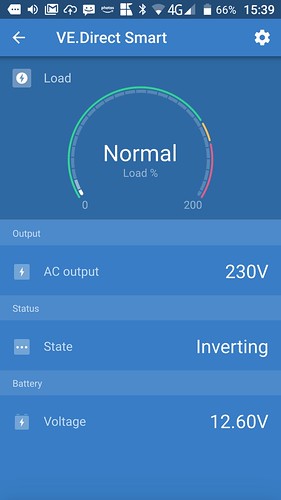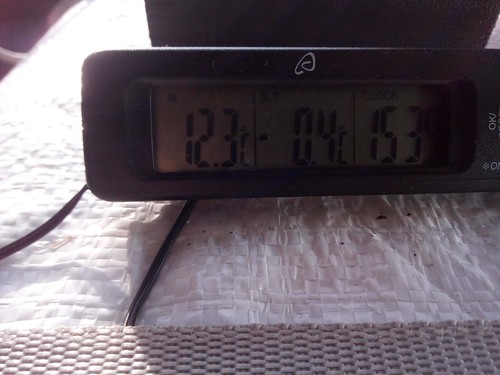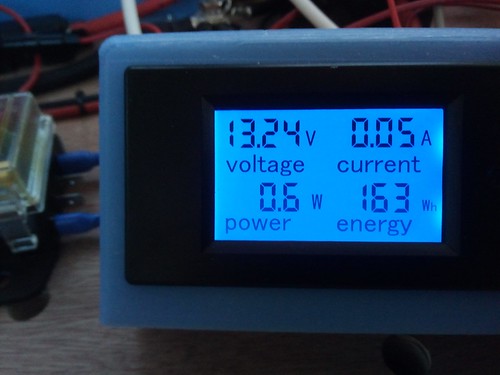Final Update for Now - with Inverter Comparision and a Summary
This is now 6 Full Days since I started this Consumption Test.
Day 1-3 was using an standard economy Inverter connected to the Battery Bank and with a Single Load - a A++ Rated 93L Fridge
The Total Power Usage (Fridge AND Inverter) in the 3 days was 905Wh
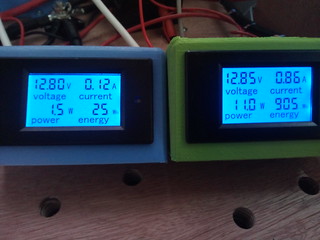 IMG_20180306_152900
IMG_20180306_152900 by
David, on Flickr
This represents an
average of around 300Wh per Day;
Using an AC Watt Meter confirmed previous calculations that the Inverter was responsible for 240Wh a Day of that consumption and the Fridge itself drew an average of about 60Wh a Day over the 3 days.
Day 4-6 was using a Victron Inverter set in ECO Mode, again connected to the Battery Bank and with a Single Load - a A++ Rated 93L Fridge.
The Total Power Usage in the 2nd set of 3 days was 404Wh.
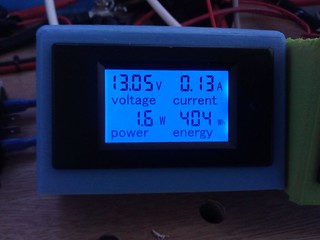 IMG_20180309_153731
IMG_20180309_153731 by
David, on Flickr
This represents an
average of around 135Wh per Day;
It was not possible to use an AC Watt Meter with the Inverter in ECO Mode, but previous testing showed the Victron in ECO mode used 25Wh a Day, so we will base the Fridge Usage on that basis
So with the Inverter responsible for 25Wh a Day of that 404Wh consumption, it means the Fridge itself drew an average of about 110Wh a Day over the 3 days.
This higher consumption makes sense as the ambient temperature has been higher (but still less than 10C) as the days have changed, with day 3 being the warmest, and the last couple of days being a little cooler again (still an Ice Sheet on the top of my trailer at lunchtime today) but not as bad as day 1.
The test is now over and the fridge turned off and it needs to move out the way as I am restarting my interior build out (Bed Platform time). The following are my conclusions.
CONCLUSIONS
Power Usage
Extrapolating the Data into a "Normal" situation, where the Fridge is operating in a temp of around 20C and using Fridge Manufacturers Consumption figure, plus my test result consumptions for the Inverters, this is what I am concluding:
Using standard economy Inverter: Total Power Consumed per Day averages 460Wh = 19Wh/Hr = 1.6Ah/Hr (38.4Ah/Day)
Using Victron Phoenix Inverter: Total Power Consumed per Day averages 245Wh = 10Wh/Hr = 0.85Ah/Hr (20.4Ah/Day
Dropping around 20% OFF the Waeco numbers as they are quoted at 25C and the AC Fridge probably at 20C, I am estimating the following
Verses Weaco CRX-50 12V Fridge: Estimated Power Consumed per Day averages 288Wh = 12Wh/Hr = 1.0Ah/Hr (24Ah/Day)
Using a basic economy Inverter with this Class A++ AC Fridge, you will use around 15Ah per Day MORE than an efficient 12V Compressor Fridge
Using a quality Inverter with ECO feature with this AC Fridge, you will use around 3.5Ah per Day LESS than an efficient 12V Compressor Fridge
The additional Power usage of 15Ah a day (basic Inverter) represents around 1/3rd of the AVAILABLE power from a 100Ah Battery.
The Power Saving of 3.5Ah a day (with the Victron Inverter) is neither here nor there.
Item Costs
A Weaco CRX-50 12V DC Compressor Fridge is one of the most efficient of that type on the market - it costs around £500. the Bigger CRX-80 is around £700 and likely uses same power.
To get an AC Alternative requires Fridge AND Inverter of course.
Fridge:
It is possible to get a 40L A++ Fridge from Inventor for around £85; The AC Class A++ 94L Fridge from Inventor and as tested costs £170;
Inverter:
Basic Inverter - Prices vary; We will assume £100 as a Ballpark figure (plenty suitable available for less)
Victron Inverter - We will assume £165 (usual selling price less) for 12/500 Model
Battery: To compensate for the extra power used by the basic Inverter, an additional battery may be considered (you may have spare capacity already)? To give 3 Days worth of extra power needed to make things equal, an 100Ah battery would be needed - £100
Cost Summary
40-50L Fridge Solution:
DC Option = £500
AC Option (with Basic Inverter + Battery) = £85 + £100 + £100 = £285 --> Saving of £215
AC Option (with Victron Inverter) = £85 + £165 = £270 --> Saving of £230
80-95L Fridge Solution:
DC Option = £700
AC Option (with Basic Inverter + Battery) = £170 + £100 + £100 = £370 --> Saving of £330
AC Option (with Victron Inverter) = £170 + £165 = £335--> Saving of £365
So a considerable saving for AC. Another consideration for me was cost of replacement - if the Fridge fails, it is another £500 - £700 cost. For the AC option, it is a £85 - £170 cost.
For me personally, I was happy to go AC for my Refrigeration to gain those cost savings (this was the primary drive - for both initial purchase and replacement costs)
I selected a Fridge with good energy usage and a 2 year warranty.
I chose a Victron Inverter as it is best quality and has a 5 year warranty.

